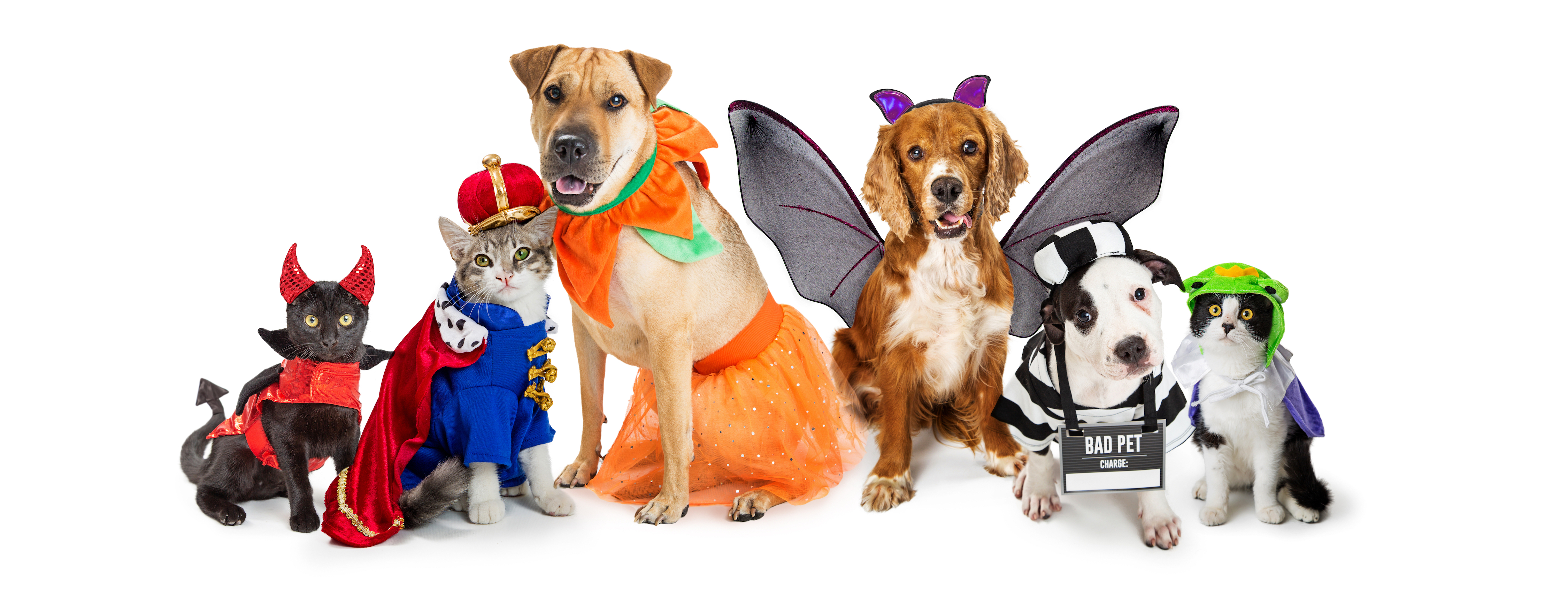
Halloween is a fun day filled with candy and costumes, but your pets may see things differently. Halloween can be traumatic and even dangerous to pets. Follow these Halloween pet safety tips to keep your pets happy and healthy.
- Lock candy safely away.
Kids love to stash candy in their rooms, but a dog’s keen sense of smell will lead him to even the most cleverly hidden treasure. Contact a veterinary professional right away if your pet does get into Halloween candy, especially if it contains chocolate, is sugar-free and contains xylitol or contains raisins. - Try on pet costumes before the big night.
Costumes can be fun for the whole family. If you are planning on dressing up your best bud, ensure that the costume fits well and isn’t going to slip and tangle the pet or cause a choking hazard if chewed on. Never leave a costumed pet unattended. - Don’t leave glow sticks lying around.
ASPCA Poison Control gets lots of panicked calls around Halloween from people whose pets have ingested the liquid in glow sticks. While most of them are labeled as non-toxic, they do have an extremely bitter taste and we will often see pets who bite into them drooling and racing around the house. A little treat or sip of milk will usually stop the taste reaction. You can also take the pet into a dark place (like a closet or a windowless bathroom) and see if they glow (especially around their mouth or neck). You will want to wipe off any spots that glow with a damp cloth to prevent the pet from licking the substance and having another reaction. - Keep your pet identified and visible.
There are a lot of extra people on the streets at Halloween, and that combined with strange costumes can spook pets and cause them to bolt. If you take your pet out after dark, make sure he or she wears a reflective collar and is securely leashed. And make sure your pet has proper identification on the collar.
 Dr. Christine Klippen received a BS in Animal Sciences from Colorado State and a BS in Nursing from George Mason University. She attended Colorado State University for veterinary school and has been working in specialty hospitals since 2009. Dr. Klippen is part of our Emergency & Critical Care team and has a special interest in critical care, toxicology, trauma and education.
Dr. Christine Klippen received a BS in Animal Sciences from Colorado State and a BS in Nursing from George Mason University. She attended Colorado State University for veterinary school and has been working in specialty hospitals since 2009. Dr. Klippen is part of our Emergency & Critical Care team and has a special interest in critical care, toxicology, trauma and education.
